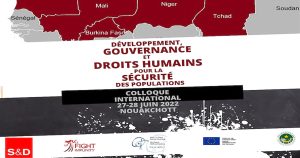On 17 September 2013, the Appellate Division of the Supreme Court of Bangladesh sentenced to death Abdul Quader Mollah, a senior leader in Bangladesh’s largest Islamic party, who was originally sentenced to life imprisonment by the International Crimes Tribunal (ICT) for crimes against humanity committed during the country’s 1971 war of independence with Pakistan. This decision is the result of an amendment by the Bangladesh Government to the law, adopted after the original sentencing of Mr Mollah, to allow retrospectively a prosecution appeal seeking the application of the death penalty.
This controversial judgment is the latest in a series of decisions this year that have sparked serious violence throughout the country and raised strong concerns of the international community about violations of fair trial rights. Tomorrow, in the framework of its 24th regular session held in Geneva, the UN Human Rights Council is adopting the outcomes of the Universal Periodic Review (UPR) for Bangladesh, which provides the Council and others with an opportunity to urge the country to abide by its international legal obligations.
Statement by Alison Smith, Legal Counsel of No Peace Without Justice:
“No Peace Without Justice (NPWJ) and the Nonviolent Radical Party, Transnational and Transparty (NRPTT) continue to be deeply concerned by the ongoing failure of the Bangladesh judicial authorities to uphold due process rights and guarantee fair trials in the enforcement of crimes under international law. This latest farce of allowing the application of a harsher penalty tarnishes the credibility of the accountability efforts to address the massive atrocities committed during the nine-month conflict in 1971, from which Bangladesh traumatically emerged as an independent State and which haunt the country to this day.
“The death sentence against Abdul Qader Mollah is based on the retroactive application of legislation that was amended after his trial concluded and is not subject to appeal. These two facts put Bangladesh in clear breach of international conventions, including the International Covenant on Civil and Political Rights, to which it is a State party. Unfortunately, this judgment is only the latest in a series of repeated serious violations of international human rights standards and international standards of procedure, fairness and transparency, which completely undermine the process conducted by Bangladesh’s International Crimes Tribunal.
“The ICT, which began its work in March 2010, could have been an historic opportunity to provide proper acknowledgement and redress to countless victims and allow the country to move forward free from the heavy burden of a long-standing culture of impunity. However, by focussing its investigations on the current leadership of opposition political parties for their role during the conflict and by handing down the death penalty against several individuals on trial before it, the ICT has inevitably reinforced the claims of those who dismiss its proceedings as a clumsy attempt to carry out an unjust and politically motivated judicial exercise of vengeance under the guise of fighting impunity.
“Bangladesh’s consistent ignoring of the legitimate concerns and persistent demands of the international community, including official rulings by United Nations bodies, only adds fuel to the revisionist attempts of those who are bent to negate the crimes, vilify the victims and hamper the chances for meaningful reconciliation in the country. On the day of the adoption of Bangladesh’s Universal Periodic Review Report by the UN Human Rights Council, we look to the international community to take concrete steps to ensure that Bangladesh complies with its international human rights and other treaty obligations. This includes the immediate and categorical exclusion of the death penalty for individuals accused by ICT and the application in full all due process guarantees, to the highest international standards”.
For further information, contact Alison Smith on asmith@npwj.org or +32-2-548 39 12 or Nicola Giovannini on ngiovannini@npwj.org or +32-2-548-3915.




